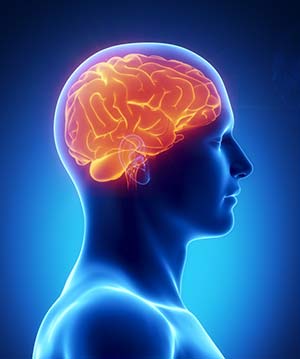Work-related brain injuries are often debilitating and may prevent a person from resuming their normal life activities.
Work-related brain injuries often result from contact with toxic materials or getting hit on the head. Brain injuries are often debilitating and may prevent a person from returning to work. The injured worker may have to endure the cost of rehabilitation and healthcare for a lifetime. These costs can be very high and it may not be possible for the injured person to pay for them. However, the workers’ compensation system provides medical and wage loss benefits to employees suffering from traumatic brain injuries. Work-related traumatic brain injuries can happen because of:
- Falling from a scaffold or ladder.
- Automobile accidents while working.
- Slipping and falling.
- Contact with toxic materials.
Traumatic Brain Injury Symptoms
The degree of damage to the brain determines the symptoms of a traumatic brain injury. Mild traumatic brain injuries can cause a person to lose consciousness for a couple of seconds or minutes, or the person may remain in a vegetative state for months at a stretch. The symptoms of this traumatic brain injury include:
- Migraine.
- Disorientation.
- Whirling sensation.
- Unsteadiness.
- Vision is blurred or eyes become tired.
- Buzzing sounds.
- Impairment of the taste buds.
- Exhaustion or weariness.
- Changes in sleeping patterns.
- Mood changes, dejection, or changes in personality.
- Memory loss, distraction, or inattention.
The symptoms of moderate or severe traumatic brain injuries include the symptoms of mild traumatic brain injury and some others include the following:
- A prolonged migraine that may worsen with time.
- Continuous nausea.
- Seizures or muscle spasms.
- Dilated eyes.
- Garbled speech.
- Lack of sensation in the extremities.
- Loss of dexterity.
- Increasing restlessness, disorientation, or tension.
Long-Term Implications of Traumatic Brain Injuries
Traumatic brain injuries can have long-term implications for the employee and his family. The lasting effects of traumatic brain injury include the following:
- Psychological problems – Logic, thinking, and memory.
- Sensory problems – Sense of sight, touch, hearing, smell, and taste.
- Communication problems – Verbal communication, expression, and comprehension.
- Mobility – Limited movement, abrupt muscle spasm, or loss of dexterity.
- Mental or behavioral problems – Dejection, nervousness, aggressiveness, changes in personality, hostility, and impropriety.
- Convulsions.
- Parkinson’s disease.
Severe cases of traumatic brain injuries can cause the following unnatural states of consciousness. These conditions necessitate continuous in-patient medical care:
- Stupor – The patient can be aroused only with a strong stimulus.
- Coma – The patient cannot be stimulated at all.
- Constant vegetative state – The patient experiences sleep-wake cycles and stages of attentiveness despite being unconscious.
- Minimally conscious state – The patient is in a vegetative state while showing indications of mental activity.
- Locked-in syndrome – The patient can reason and think despite being unable to move or talk.
- Brain death – It is characterized by extensive brain damage. Heart attack and respiratory failure occur as soon as life support systems are removed.
Getting Workers Comp Benefits for a Traumatic Brain Injury
If you have suffered because of a work-related brain injury, an experienced Kansas City Missouri workers’ compensation lawyer can help you receive the correct workers’ compensation benefits. Call The Law Office of James M. Hoffmann at (816) 399-3706 for a free consultation.


2 thoughts on “Workers’ Compensation for Traumatic Brain Injury”